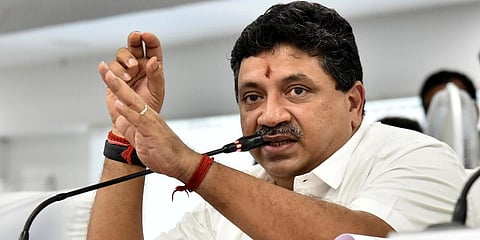

CHENNAI: Faced with a surfeit of cesses that deprive the States of their legitimate share of central tax revenue, the Tamil Nadu government has constituted an advisory council to develop a Federal Fiscal Model on revenue and taxation laws, including GST, as promised in the 2021-2022 Budget by Finance Minister Palanivel Thiaga Rajan.
The six-member panel will be headed by Arvind P Datar, senior advocate of Supreme Court. K Vaitheeswaran and G Natarajan, advocates, Madras High Court, Suresh Raman, Vice-President and Region Head, TCS-Service Sector, Srivats Ram, Managing Director, Wheels India Limited, and K Velmurugan, president, Hosur Small and Tiny Industries Association, will be members of the panel.
The move comes after the State flagged structural and implementation problems in Goods and Service Tax (GST) and issues in sharing taxes between the Centre and States and among States as per the recommendations of successive finance commissions, including the recent 15th Finance Commission.
The Union government's increasing use of cesses and surcharges, which doubled from 10 to 20 per cent in the total component of central taxes, deprived States of their tax share. The dilution of spirit of federalism was clearly visible in taxation of petrol and diesel.
"Even as the Union government's cesses and surcharges went up progressively, the basic Union excise duty was brought down sharply. Hence, in 2020-21, as the Centre's revenue from petrol and diesel went up by 63% compared to the previous year, the States’ share declined sharply," Thiaga Rajan had remarked.
Even the Comptroller and Auditor General of India (CAG) has pointed out that the Union government’s cesses levied for a specific purpose have not been fully utilised for the intended purpose and surcharges that are meant for a limited period have continued to be levied almost indefinitely.
According to a Reserve Bank of India report published in 2017, though considerable revenue is generated through special levies by the Centre, the benefits do not percolate down to States as special levies are not a part of the divisible pool of taxes. "The divisible tax pool, as a proportion of the total tax revenue, has actually shrunk," the report said.
Although the Centre has been claiming that it has been sharing more tax revenue with States, it has been cutting down on its assistance for State plans. Over the years, States have naturally been arguing against cesses, suggesting that either they be completely eliminated or, if continued beyond a specified period, should become part of the divisible pool.
"The Union finance minister on Monday tweeted that the 'Risk of going Sri Lanka way' is very real. More than 'populist measures' the problem is the unchecked (by constitutional limits or 'independent' institutions) power grab by the Union Govt where one-size-fits-all schemes are hatched without debate and hence will cause real damage," Thiaga Rajan stated in his tweet on Monday.
The DMK, at a party conference in Tiruchy in February 1970, came out with the slogan "maanilathile suyatchi, mathiyile kootatchi" (autonomy for states, federalism at the Centre), to give voice to party founder CN Annadurai's demand to recalibrate Centre-State relationship.
Anna, who championed the idea of federalism and staunchly resisted attempts by the Centre to dilute the State's rights and prerogatives, had argued that an ideal Centre is the one that leaves sufficient powers to the States and retains just enough power to protect the sovereignty and territorial integrity of the country.
'Divide cess revenue'
States have been arguing against cesses, suggesting that either they be completely eliminated or, if continued beyond a specified period, become part of the divisible pool.